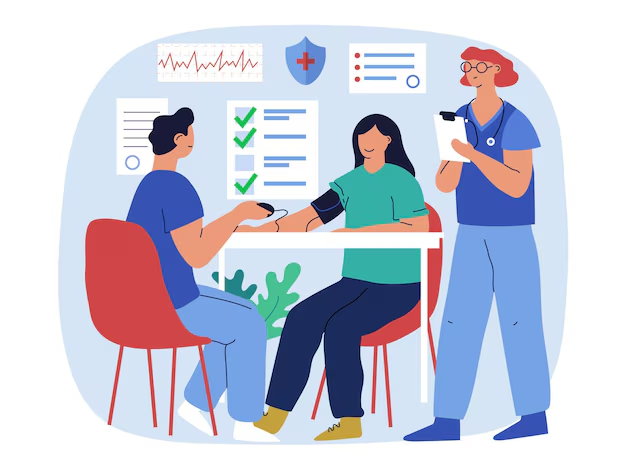January 10th, 2022
When was Omicron Variant First Found in Texas and What is This Variant of COVID-19? (Please see article below)
Texas Identifies Case of COVID-19 Omicron Variant
News Release
Dec. 6, 2021
The first known Texas case of the COVID-19 B.1.1.529 variant has been identified in a resident of Harris County. The adult female resident was recently diagnosed with COVID-19. Results of genetic sequencing this week showed that the infection was caused by the Omicron variant strain. The case is being investigated by Harris County Public Health and the Texas Department of State Health Services.
“It’s normal for viruses to mutate, and given how quickly Omicron spread in southern Africa, we’re not surprised that it showed up here,” said Dr. John Hellerstedt, DSHS commissioner. “Getting vaccinated and continuing to use prevention strategies, including wearing a mask when you are around people you don’t live with, social distancing, handwashing and getting tested when you have symptoms, will help slow the spread of the virus and help end the pandemic.”
The B.1.1.529 variant was identified in South Africa last month and appears to spread more easily from person to person than most strains of the coronavirus. Currently, it is unclear if the Omicron variant is associated with more severe disease. Studies have commenced to determine how effective vaccines are expected to be against infection. However, vaccination is expected to continue to offer protection against hospitalization and death. Omicron is thought to be responsible for a small proportion of the current COVID-19 cases in Texas and the United States.
Vaccination remains the best protection against serious illness and death from COVID-19. Everyone 5 years and older is eligible for vaccination, and everyone 18 years and older should get a booster shot when they are eligible. The latest on COVID-19 in Texas is available at dshs.texas.gov/coronavirus, including daily case data and information on testing and vaccination.
HHS
Corona Virus Testing and Testing Information (Includes videos and information about finding testing locations near you and home-testing as well)
DSHS
Below are frequently asked questions (FAQs) about the variants of COVID-19, including the Delta and Omicron variants.
How can I tell if I have the Delta or Omicron variant? Do labs report that to the state?
That information may not be readily available. The viral tests that are used to determine if a person has COVID-19 are not designed to tell you what variant is causing the infection. Identifying COVID-19 variants requires a special type of testing called genomic sequencing. Due to the volume of COVID-19 cases, sequencing is not performed on all viral samples. However, because the Omicron variant now accounts for the majority of COVID-19 cases in the United States, there is a strong likelihood that a positive test result indicates infection with the Omicron variant.
Are the symptoms different for the Delta or Omicron variant? If so, what are they?
Because Delta and Omicron are variants of the same virus—SARS-CoV-2, the virus that causes COVID 19—the symptoms and the emergency warning signs are the same. However, some variants may spread more easily or may cause more severe symptoms and illness. Because of this, scientists are actively monitoring and studying new variants to learn more about how easily they spread, whether they make people more or less sick, and how well they respond to existing vaccines, treatments, and tests.
Is Texas tracking variants of COVID-19?
Yes. Public health officials at the federal, state, and local levels continue to study variants, monitor their spread, develop strategies to slow their spread, and test how variants may respond to existing therapies, vaccines, and testing. For information on variants of concern in Texas, see the Variants and Genomic Surveillance for SARS-CoV-2 in Texas section of the DSHS website.
Who is most at risk of contracting a variant of COVID-19?
Unvaccinated people are most at risk of contracting COVID-19, including any of its variants. The Delta and Omicron variants are more aggressive than other known variants and spread most rapidly in communities with fewer fully vaccinated people.
The absolute best protection for yourself and those close to you is getting fully vaccinated. The vaccine is proven to safely protect you from COVID-19’s worst effects and lowers your chances of spreading the virus. Greatly increasing the number of fully vaccinated Texans is the only way to prevent a devastating rise in the spread of the pandemic virus.
Are the newer variants worse than the early COVID-19 strains? Will a variant make me sicker than previous strains?
Omicron appears to spread much more easily than other known variants, which means it’s more contagious than other variants. We are still learning whether Omicron may put infected people at higher or lower risk of hospitalization than other variants.
What’s the treatment for patients with the Delta or Omicron variant?
There are different treatment options available for all COVID-19 variants, but some treatments may be more effective for certain variants. In many cases, treatments are reserved for certain high-risk groups. If you or a loved one is sick, check with your healthcare provider about your specific case.
What is the current travel guidance?
Travel recommendations may vary depending on whether you are fully vaccinated or not. Some travel destinations may have different requirements for vaccinated and unvaccinated travelers.
Keep in mind that travel and other guidance may change as we learn more about the virus variants and breakthrough cases. Stay up to date with CDC travel recommendations by visiting the Travel page of the CDC website.
Are people of certain ages at higher risk for infection with the newer variants?
Yes. Anyone who is not fully vaccinated is at greater risk of getting COVID-19. Children up to 5 years old are not yet eligible to receive the COVID-19 vaccine. Anyone who is old enough and able to get the vaccine should do so to protect those who are unable to get it, as well as those for whom the vaccine is less protective. That includes children under age 5 and people with certain medical conditions. It’s also important for those people who qualify to get the booster dose, too.
How many known variants are there?
There are many. Because viruses constantly change through mutation, new variants occur all the time. Sometimes they disappear, and sometimes they persist. Variants are classified in four ways, from least to most severe: Variants Being Monitored, Variants of Interest, Variants of Concern, and Variants of High Consequence.
Public health officials are currently studying two that are classified as Variants of Concern: Delta and Omicron. These are variants that show evidence of an increase in transmissibility, more severe disease (increased hospitalizations or deaths), and/or reduced effectiveness of tests, treatments, or vaccines.
In the U.S., there are currently many Variants Being Monitored, but no Variants of Interest or Variants of High Consequence.
To learn more about variants in the U.S., visit the About Variants of the Virus, Variant Classification, and Variant Surveillance pages on the CDC website.
What are the differences between the variants?
Variants vary by their genetic markers. These differences in genetic markers may affect how easily the virus is spread, the severity of illness, how well existing tests can detect the virus, the effectiveness of treatments and vaccines, and more.
Each variant is slightly different. Think of variants like branches on a tree. Each branch is slightly different than others on the tree, but they have similarities, too. Scientists study the differences in COVID-19 variants, so they can label and track them according to those differences.
Do the vaccines protect against the Omicron variant?
Early data suggest that the available vaccines are effective against severe disease and hospitalization caused by the Omicron variant. The best protection against any COVID‑19 variant is getting fully vaccinated. And a booster dose of vaccine is a proven way to maximize the protection against infection and severe disease.
Which vaccine provides better protection against the virus?
In mid-December 2021, CDC updated their vaccine recommendations with a preference for mRNA vaccine (Pfizer and Moderna) over the Johnson & Johnson (J&J) vaccine. However, public health experts continue to say that getting any vaccine is better than being unvaccinated. J&J vaccine will remain available for people who are unable or unwilling to get an mRNA vaccine.
Read CDC’s media statement to learn more about the updated vaccine recommendations.
Keep in mind that guidance may change as we learn more about the virus variants. DSHS will update information as it becomes available.
LTC Regulatory Services
Incident Reporting
HHS regulated providers can self-report incidents affecting resident health/safety, including issues related to COVID-19, online to the Health and Human Services Commission or by calling 1-800-458-9858.
- Incidents Submission Portal for Long-term Care providers
- Incidents Submission Portal for Health Care Quality providers
Intermediate Care Facilities (ICF/IID)
- ICF/IID Provider COVID-19 Vaccination Data Reporting Rule (PDF)
- ICF/IID COVID-19 Expansion of Reopening Visitation Emergency Rule (PDF)
- ICF/IID COVID-19 Response Emergency Rule (PDF)
- COVID-19 Response for ICF/IIDs (PDF)
- Frequently Asked Questions for ICF/IIDs (PDF)


